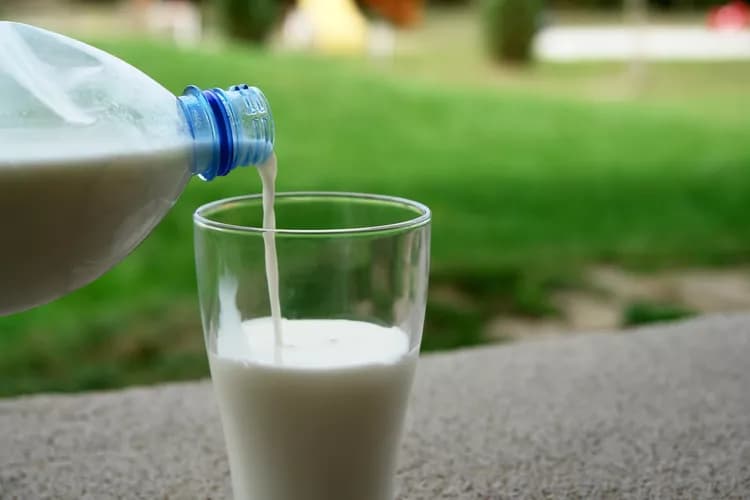Most of us are familiar with the disease-fighting properties of vitamin D, but we often do not get enough of this important nutrient in our everyday diet or through sun exposure, for it is also known as the ‘sunshine vitamin’. Today, we eat processed and canned foods, sometimes more than natural and fresh fruits and vegetables, which lack essential vitamins. This factor has been a major contributing to the increasing rate of vitamin D deficiency worldwide.
Why is vitamin D important?
According to official consensus collected in the National Health and Nutritional Examination Survey for Centers for Disease Control and Prevention (CDC), about 50% of men, 60% of women, and 80% of children have low levels of calcium, which has led to some form of retarded growth and development. Vitamin D has not only been required for healthy bone growth, but also essential for calcium absorption. An insufficiency of vitamin D is associated with higher risks of life-threatening and chronic disorders like cancer, heart diseases, retarded growth, multiple sclerosis, and cognitive insufficiency.
According to the National Institutes of Health (NIH), a healthy amount of vitamin D consumption each day can lead to a decrease in inflammation and various illnesses that lower our body immunity. To gain vitamin D, we can use various sources, ranging from food and supplements to sunlight. But milk and dairy products have proven to be the best source for meeting the daily requirement of vitamin D.
How is milk the best source for vitamin D?
The U.S. Food and Drug Administration (FDA) guidelines have pointed out that adults, both men and women, should consume about 500 IUs of vitamin D daily for a healthy body. Children under 18 years are advised to consume 300 IUs of vitamin D through their diet every day. The best way to include vitamin D in the diet every day is through the regular intake of vitamin d foods such as milk and dairy products.
Milk, whether skim or whole, is a naturally rich source of vitamin D. According to the researchers at Linus Pauling Institute of Health, one cup of milk is fortified with vitamin D and contains as much as 200 IUs, which, when consumed regularly, can benefit our immunity and fitness. A recent scientific study published in 2014 by Harvard University researchers established that milk is the best source for vitamin D and consequently, calcium. Dairy products, such as yogurt, cheese, and low-fat milk, are high in vitamin D as compared to other food options. According to University of Maryland Medical Center researchers, milk consumption has dual benefits. Apart from providing essential amounts of vitamin D, milk is also a powerhouse of calcium, which will help you maintain healthy bones.
If you want to decrease your chances of acquiring lifestyle disorders from low vitamin d, like osteoporosis, hip, and joint fractures, or weak bones in adulthood, you should increase your vitamin D intake. By increasing your consumption of milk, you can get the maximum amount of nutrition required for healthy growth and development.
Reference:
http://www.hsph.harvard.edu/nutritionsource/calcium-full-story (accessed on 12/2/2015)
http://nof.org/articles/10 (accessed on 12/2/2015)
Larsson SC, Bergkvist L, Rutegard J, Giovannucci E, Wolk A. Calcium and dairy food intakes are inversely associated with colorectal cancer risk in the Cohort of Swedish Men. Am J Clin Nutr. 2006; 83:667–73
Bischoff-Ferrari HA, Dawson-Hughes B, Willett WC, et al. Effect of vitamin D on falls: a meta-analysis. JAMA. 2004; 291:1999–2006
Bischoff-Ferrari HA, Willett WC, Wong JB, Giovannucci E, Dietrich T, Dawson-Hughes B. Fracture prevention with vitamin D supplementation: a meta-analysis of randomized controlled trials. JAMA, 2005; 293:2257–64.
http://umm.edu/health/medical/altmed/supplement/vitamin-d (accessed on 12/2/2015)
Helpful Peer-Reviewed Medical Articles:
Chen, T. C., Chimeh, F., Lu, Z., Mathieu, J., Person, K. S., Zhang, A., ... & Holick, M. F. (2007). Factors that influence the cutaneous synthesis and dietary sources of vitamin D. Archives of biochemistry and biophysics, 460(2), 213-217.
Faulkner, H., Hussein, A., Foran, M., & Szijarto, L. (2000). A survey of vitamin A and D contents of fortified fluid milk in Ontario. Journal of dairy science, 83(6), 1210-1216.
Maguire, J. L., Lebovic, G., Kandasamy, S., Khovratovich, M., Mamdani, M., Birken, C. S., & Parkin, P. C. (2013). The relationship between cow’s milk and stores of vitamin D and iron in early childhood. Pediatrics, 131(1), e144-e151.
Related Articles
Test Your Knowledge
Asked by users
Related Centers
Related Specialties
Related Physicians
Related Procedures
Related Resources
Join DoveHubs
and connect with fellow professionals


0 Comments
Please log in to post a comment.